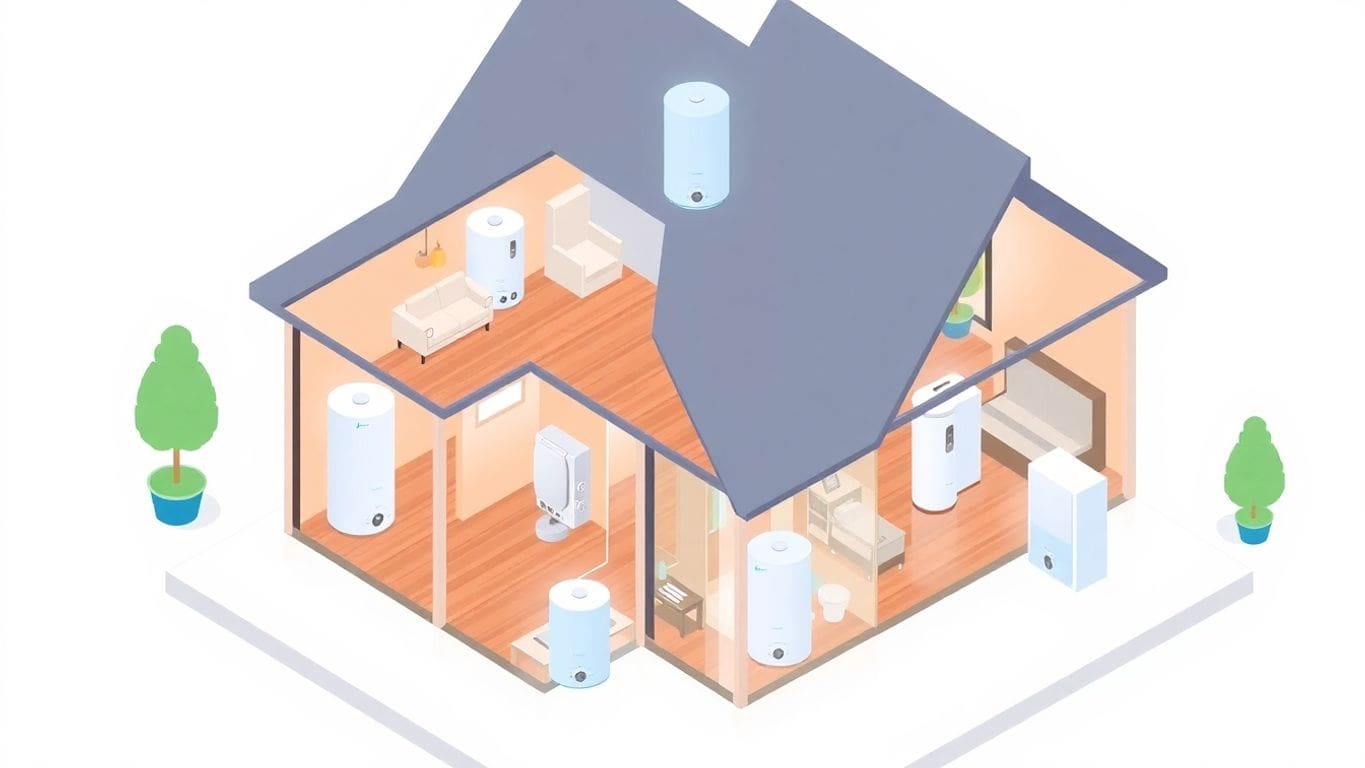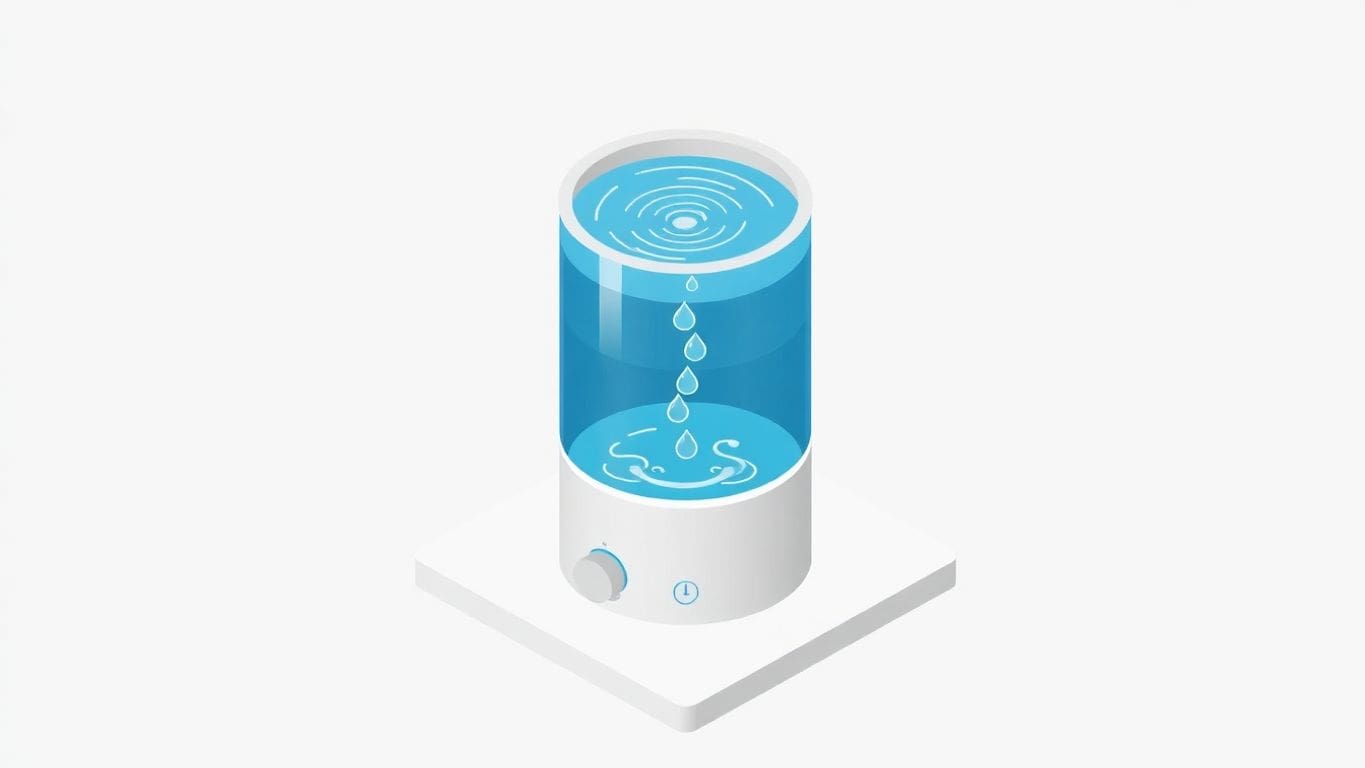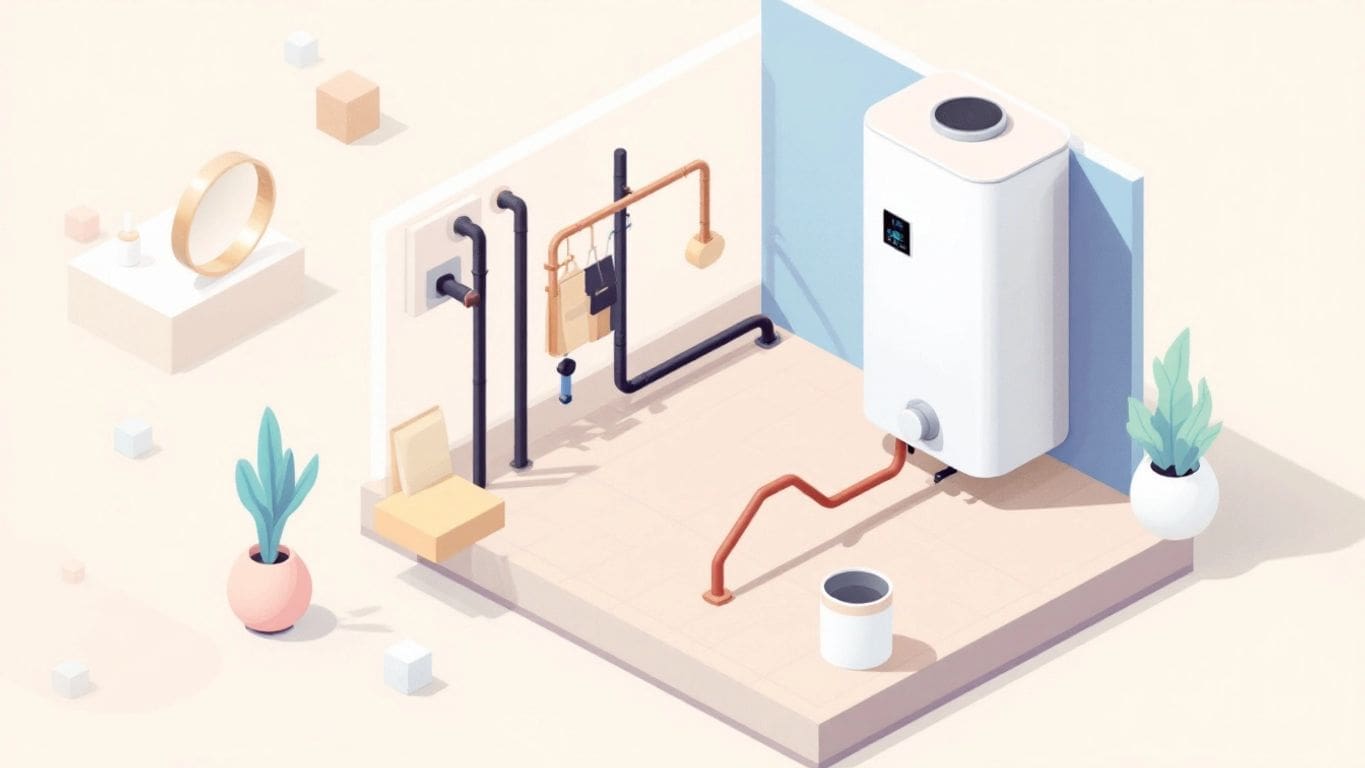
Water heaters are a vital part of our homes, supplying hot water for everything from showers to laundry. But just like any appliance, they have a lifespan. Knowing when to replace your water heater can save you from sudden cold showers and unexpected costs. This guide will help you understand how long water heaters last, the signs that indicate it’s time for a replacement, and tips for choosing the right new unit.
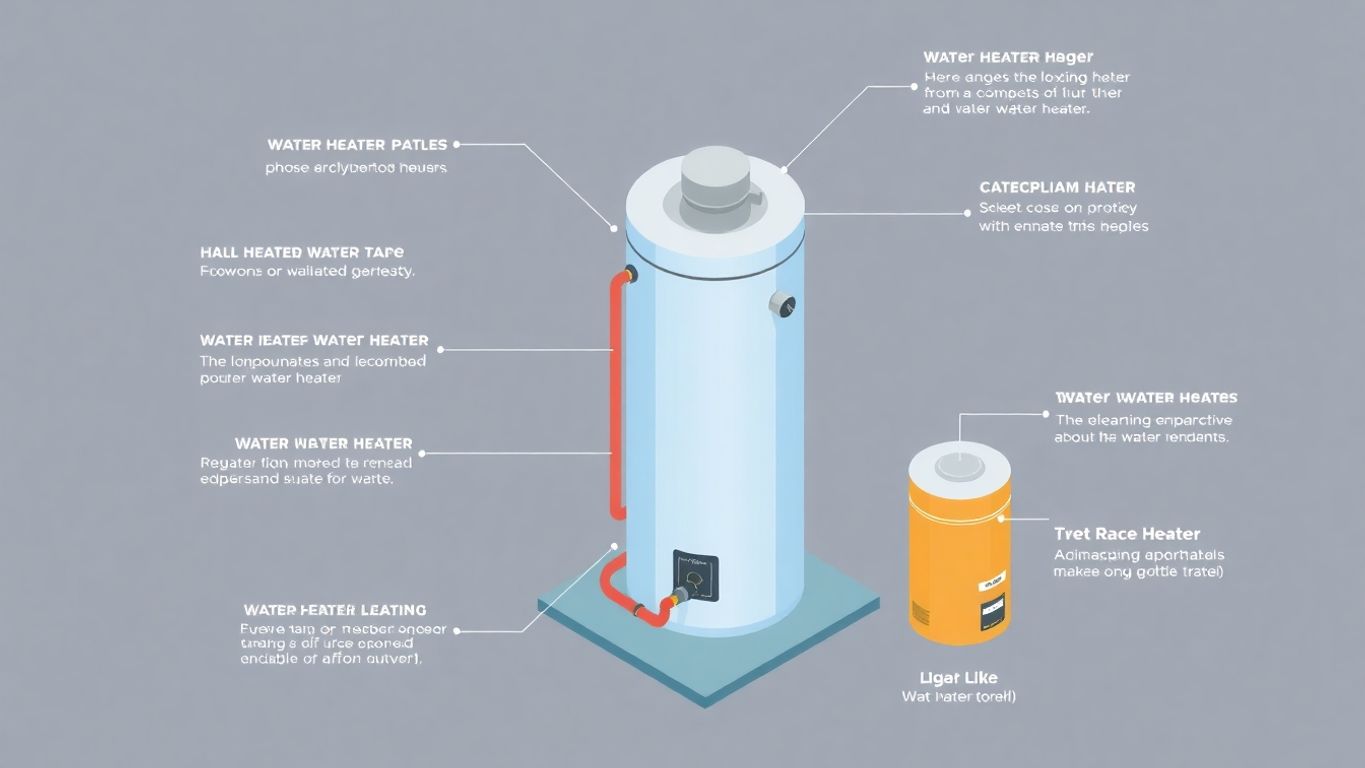
It’s good to know how long your water heater will last. This helps you plan for when you might need a new one. Most water heaters don’t last forever, so let’s look at what affects their lifespan.
Different types of water heaters have different lifespans. Tank water heaters usually last 10-15 years. Tankless water heaters can last longer, sometimes over 20 years. The type of heater you have affects how long it will work well. Knowing the type helps you estimate when you might need a replacement water heater.
Many things affect how long your water heater lasts. The quality of the water is one. Hard water can cause buildup inside the tank, which makes it wear out faster. How often you use the water heater also matters. If you use a lot of hot water, it might not last as long. Regular maintenance can help it last longer. Here’s a quick list:
Taking care of your water heater can really make a difference. Regular maintenance can extend its life by several years. Draining the tank once a year helps remove sediment. You should also check the anode rod. This rod protects the tank from rusting. If you keep up with maintenance, your water heater will work better and last longer.
Doing a little maintenance can save you money in the long run. It helps prevent big problems and keeps your water heater running efficiently. Plus, you’ll have hot water when you need it!
It’s important to know when your water heater is about to fail. Catching the signs early can save you from a cold shower or a flooded basement. Here’s what to look for:
Have you noticed your shower water going from hot to cold without warning? Or maybe it takes forever to get hot water at all? This could mean your water heater is struggling to do its job. It might be a sign that the heating element is failing or that there’s a buildup of sediment in the tank. Either way, inconsistent water temperature is a red flag.
Is your water heater making weird noises? Rumbling, popping, or banging sounds are not normal. These noises often mean there’s sediment buildup in the tank. As water heats, it bubbles through the sediment, causing those strange sounds. While flushing the tank might help, persistent noises could mean it’s time to consider a water heater replacement.
Rust is never a good sign, especially when it comes to your water heater. Check the tank and the surrounding pipes for any signs of rust or corrosion. If you see rusty water coming from your faucets, that’s another bad sign. Corrosion can weaken the tank and lead to leaks, which can cause serious damage to your home. If you spot rust, it’s time to call a plumber and think about replacing your water heater.
Ignoring these signs can lead to bigger problems down the road. A failing water heater can leak, causing water damage and mold growth. It can also burst, flooding your home and costing you a lot of money. So, pay attention to the warning signs and take action before it’s too late.
Here’s a quick checklist of things to look for:
Water heaters are important. They give us hot water for showers and washing dishes. But they don’t last forever. So, when should you get a new one?
Most water heaters last about 8 to 12 years. But this can change based on the type of water heater you have. Tankless water heaters can last longer, sometimes up to 20 years. If your water heater is getting close to that age, it’s a good idea to start thinking about replacing it.
How much you use your water heater affects how long it lasts. If you use a lot of hot water, it might wear out faster. Also, hard water can cause problems. Minerals in hard water can build up inside the tank. This makes the water heater work harder and can shorten its life. Regular maintenance, like flushing the tank, can help.
Sometimes, your water heater might have problems. You might think about fixing it. But, at some point, repairs cost too much. If your water heater is old and needs a lot of repairs, it might be better to replace it. New water heaters are more efficient. They can save you money on your energy bill.
Deciding whether to repair or replace can be tricky. Think about the age of your water heater. Also, think about how much the repairs will cost. If the repairs are almost as expensive as a new water heater, replacement is often the better choice.
Here’s a simple table to help you decide:
| Issue | Recommendation |
|---|---|
| Minor repair (thermostat) | Repair |
| Old water heater (10+ years) | Replace |
| Frequent repairs | Replace |
| Leaking tank | Replace |
So, your old water heater is on its way out. Now you get to pick a new one! It might seem hard, but it’s really about figuring out what you need and what fits your budget. Let’s break it down.
There are a few main types of water heaters. The most common is the traditional tank water heater. These are usually cheaper to buy, but they store hot water all the time, which can waste energy. Then there are tankless water heaters. These heat water only when you need it, which can save energy, but they cost more upfront. You also have heat pump water heaters, which are super energy-efficient but can be pricey. Finally, solar water heaters use the sun to heat water, which is great for the environment but depends on where you live.
Energy efficiency is a big deal when picking a new water heater. Look for the Energy Star label. This means the water heater meets certain standards for saving energy. The higher the energy factor (EF) rating, the more efficient it is. A more efficient water heater will save you money on your energy bills each month. Think about it like this: a cheaper water heater might cost less now, but an energy-efficient one will save you money every month for years to come.
Getting the right size water heater is super important. If it’s too small, you’ll run out of hot water when you’re taking a shower or doing laundry. If it’s too big, you’re wasting energy heating water you don’t need. Here’s a simple guide:
Think about your daily life. How many showers do you take? How often do you run the dishwasher or washing machine? If you have a big family or use a lot of hot water, you’ll need a bigger tank. If you live alone and don’t use much hot water, a smaller tank will do just fine.
Replacing a water heater can be a big expense. It’s not just the cost of the new unit. You also have to think about installation and how much you’ll save on energy bills later. Let’s break down the different costs.
The price of a new water heater depends on the type and size you choose. A basic tank water heater is cheaper than a tankless water heater. Tankless models heat water on demand. They cost more upfront but can save you money in the long run. The size you need depends on how much hot water your family uses. Bigger families need bigger tanks, which cost more. Do some research to find a water heater that fits your budget and needs.
Don’t forget about installation costs. These can vary depending on the complexity of the job. If you’re replacing an old water heater with a similar model, the installation might be simple. But if you’re switching from a tank to a tankless model, it could cost more. This is because tankless models often need new gas lines or electrical work. Always get quotes from a few different plumbers to find the best price. Make sure they’re licensed and experienced.
Think about how much you’ll save on your energy bill each month. Newer water heaters are more energy efficient than older models. This means they use less energy to heat water. Over time, these savings can add up and help pay for the new water heater. Look for models with high Energy Star ratings. These are designed to save you money. Consider the long-term savings when making your decision.
Replacing your old water heater with a new, energy-efficient model can save you money over time. While the initial cost might seem high, the long-term savings on your energy bill can make it a worthwhile investment. Plus, you’ll have the peace of mind knowing you have a reliable source of hot water.
Here’s a simple table to show how energy savings can add up:
| Feature | Old Water Heater | New Energy-Efficient Water Heater |
|---|---|---|
| Monthly Energy Cost | $50 | $30 |
| Yearly Savings | – | $240 |
So, you’re thinking about replacing your water heater. A big question comes up: Should you hire a pro, or try to do it yourself? Both have pros and cons. Let’s break it down.
Okay, let’s be real. Installing a water heater isn’t like putting together IKEA furniture. Professionals know what they’re doing. Here’s why:
YouTube makes everything look easy, right? Not always. Here are some common mistakes people make when trying to DIY a water heater install:
Did you know that most places have rules about water heater installation? Yeah, it’s true. These codes are there for safety. They cover things like:
Ignoring these codes can lead to fines or even make your home insurance invalid. Professionals know these codes inside and out. They’ll make sure your installation is done right, so you don’t have to worry about it.
So, while DIY might save you some money upfront, it could cost you more in the long run if you mess something up. Think carefully about your skills and comfort level before you decide.
Taking care of your new water heater is key to keeping it running well for a long time. Regular maintenance can stop small problems from turning into big, expensive ones. Plus, a well-maintained water heater works better and saves you money on your energy bill. Let’s look at some simple things you can do to keep your water heater in good shape.
Here are some easy things you can do to keep your water heater working well:
Keeping up with these simple tasks can make a big difference in how long your water heater lasts. It’s like changing the oil in your car – it helps everything run smoothly.
Keep an eye out for these signs that your water heater might need attention:
Sometimes, you need a pro to help with your water heater. Here are some situations when it’s best to call a plumber:
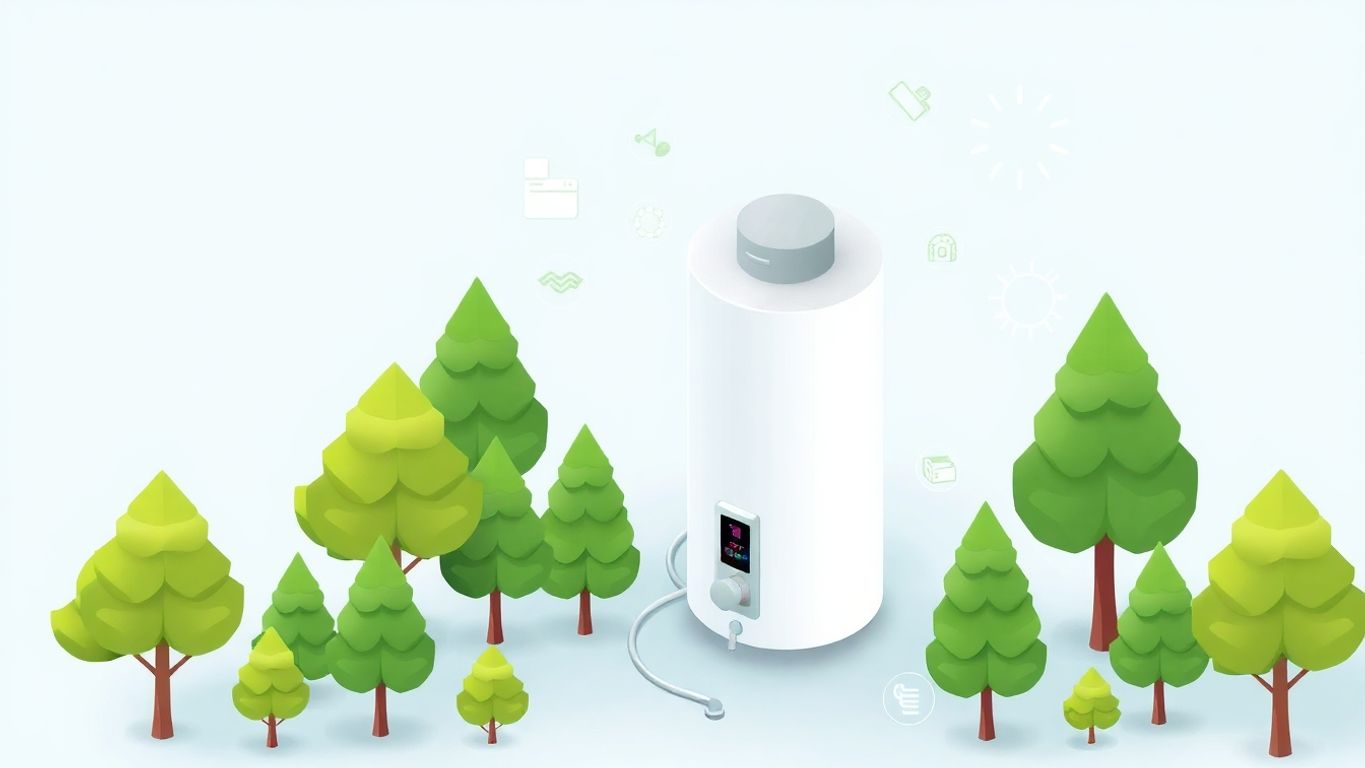
It’s easy to forget that your water heater has an impact on the environment. But the type you choose and how you use it can make a difference. Let’s look at how to make greener choices.
When you’re shopping for a new water heater, pay attention to the energy efficiency rating. This rating tells you how well the water heater uses energy. Look for the Energy Star label. This means the water heater meets certain standards for saving energy. A more efficient model will use less energy, which is good for the planet and your wallet.
There are several types of water heaters that are better for the environment:
Choosing an eco-friendly model can significantly reduce your environmental impact. These models often have higher upfront costs, but they save money in the long run through lower energy bills.
Here are some simple things you can do to lower your water heater’s impact:
When you buy a new water heater, it comes with a warranty. This is like a promise from the company that made it. The warranty says they will fix or replace the water heater if something goes wrong within a certain time. Make sure you read the warranty carefully. It will tell you what is covered and what is not. For example, some warranties only cover parts, not labor. Others might be void if you don’t install the water heater correctly. Knowing the terms can save you money and stress later.
Good manufacturer support can be a lifesaver. If you have questions or problems with your water heater, the manufacturer should be able to help. They can give you advice, troubleshoot issues, and even send someone to fix it if needed. Look for water heater brands that are known for their good customer service. Check online reviews to see what other people say about their experiences with the company’s support team.
Here’s why manufacturer support matters:
If your water heater starts acting up, don’t panic. First, check your warranty to see if the problem is covered. Then, contact the manufacturer or the store where you bought it. Explain the issue clearly and provide any information they ask for, like the model number and purchase date. Keep records of all your communications. If the problem isn’t covered by the warranty, you might need to call a plumber. Get a few quotes before you decide who to hire. Remember, fixing small problems early can prevent bigger, more expensive problems down the road.
It’s a good idea to keep all your water heater paperwork in one place. This includes the warranty, purchase receipt, and any service records. This will make it easier to deal with any issues that come up.
Most traditional water heaters last about 8 to 12 years. Tankless models can last longer, often up to 20 years.
If you notice inconsistent water temperatures, strange noises, or rust on the unit, it might be time for a replacement.
Sometimes repairs are possible, but if the costs add up or the unit is very old, replacing it may be a better choice.
Think about the size you need, energy efficiency, and whether you want a tank or tankless model.
The cost can vary widely, but you should budget for the purchase price and installation fees.
Yes, hiring a professional ensures that your water heater is installed correctly and safely.
Regular maintenance includes checking the temperature, flushing the tank, and looking for leaks.
Check the warranty and contact the manufacturer or a professional plumber for assistance.

